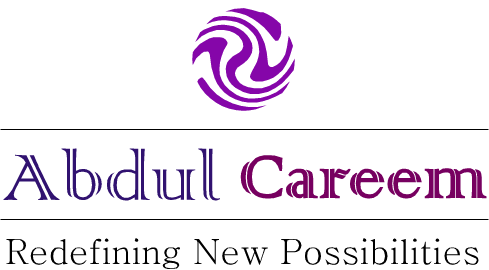Read The Latest from Our Blog
Discover Rare Insights and Perspectives on Neuromarketing, Data Science, and Business Strategy That You Won't Find Anywhere Else

Robots Are Coming for Your Job: Should You Prepare for the AI Invasion
Do you ever wonder how your smartphone's facial recognition technology knows it's you in a split second?
The answer lies in Narrow AI, which refers to the use of pattern recognition and machine learning algorithms to perform specific tasks such as identifying objects on a screen or isolating signals from noise. In today's world, we see a big hype going on about Artificial Intelligence (AI) specially after ChatGPT was released to the general public.
Narrow AI has become increasingly prevalent, powering everyday technologies like voice assistants, image recognition software, and even self-driving cars. Its ability to quickly and accurately process vast amounts of data has revolutionized many industries, from healthcare to finance. So, the next time you ask Siri a question or unlock your phone with a glance, remember that it's all thanks to the power of Narrow AI.
In today's world, what we're seeing is the widespread use of Narrow AI, which is focused on specific tasks like recognizing patterns and images or identifying signals from noise.
Unlike General AI, which aims to replicate human-level intelligence and can perform a wide range of tasks, Narrow AI is designed to excel in a particular area and often uses machine learning to improve its performance.
While General AI is still in its early stages of development, Narrow AI is already making a significant impact across a variety of industries, from healthcare to finance. By leveraging the power of Narrow AI, businesses can automate repetitive tasks, improve decision-making processes, and enhance the overall customer experience.
As we continue to make strides in AI technology, it's important to understand the difference between Narrow AI and General AI and the unique benefits they offer.
Have you ever wondered how the most creative minds in the world come up with their groundbreaking ideas?
Despite our incredible advancements in technology, we're still nothing closer to truly understanding the complexities of creative thinking. In fact, we don't even know how the brain works, let alone how it generates ideas and innovation. It's astonishing to think that we have not even been able to model a paramecium or an amoeba, which are incredibly complex organisms.
As we continue to explore the mysteries of the human brain and the natural world around us, it's clear that we still have a long way to go in unlocking the secrets of creative thinking. But don't lose hope - researchers and innovators are constantly pushing the boundaries of what we know, using cutting-edge technologies and innovative approaches to better understand the brain and unlock the potential of creative thinking. Who knows what breakthroughs may lie ahead as we continue to explore the vast potential of the human mind?
Have you ever assumed that all the computation happening within our bodies is taking place at the cellular or neuronal level? It's incredible to think that there are complex machines working inside our cells, performing countless calculations and processes that keep us alive and functioning.
It may even take up to 50 years to simulate what's happening at the cellular level and a whopping 100 years to simulate what's going on within the brain at the cellular level?
As we continue to explore the mysteries of the human body and mind, it's clear that we're not even close to approaching General AI, which aims to replicate human-level intelligence. Instead, what we're currently doing is solving deterministic, closed set finite problems using large amounts of data.
While we've made significant progress in this area, it's important to recognize that we still have a long way to go in unlocking the potential of AI and understanding the complexities of the human body and mind.
Have you noticed that AI has been working for us for quite some time now? From virtual assistants like Siri and Alexa to personalized recommendations on Netflix and Amazon, AI has become an integral part of our daily lives.
With the introduction of chat GPT, we now have the option to work with AI and generate whatever we want - whether it's writing content or generating creative ideas. It's no wonder that there's a hype surrounding the potential of AI and its impact on our world.
But with this hype comes important questions
How can we ensure that AI is being used ethically and responsibly?
How can we prevent biases from being built into AI systems?
As we continue to explore the potential of AI, it's crucial to approach this technology with a critical eye and consider the implications of its use. Nonetheless, there's no denying the incredible potential of AI to revolutionize the way we live and work, and it's exciting to see how this technology will continue to evolve in the years to come.
Do you remember when computers and calculators were first invented, and many people thought that we wouldn't need to learn mathematics or other subjects anymore? After all, why bother with manual calculations when we had machines that could do it for us?
However, fast forward to today, and we still teach calculations in schools and require them for fields like accounting. So why is this the case?
Despite the incredible power of computers and calculators, it's still crucial for us to understand the fundamentals of mathematics and other subjects. Not only does this provide us with a deeper understanding of the world around us, but it also helps us develop critical thinking and problem-solving skills. While machines can certainly make our lives easier in many ways, they can't replace the importance of human intelligence and creativity.
So next time you're wondering why you have to learn a particular subject, remember that there's still value in understanding the underlying principles and concepts - even in a world filled with technology.
Have you ever thought about the impact that technology has had on our work lives? From automation to AI, we've seen incredible advancements in recent years that have made our jobs more efficient and streamlined. However, despite these advancements, it's important to recognize that technology can never fully replace the incredible capabilities of the human brain. While machines can certainly perform specific tasks with incredible speed and accuracy, they lack the creativity, intuition, and problem-solving skills that humans possess.
Ultimately, it's the combination of human intelligence and technological innovation that allows us to achieve truly groundbreaking results. So while we continue to push the boundaries of what technology can do, let's not forget the incredible potential of the human mind and the unique contributions that we can make in a world filled with machines.
Have you ever wondered whether AI is going to take over our jobs and leave us without any work to do?
As AI technology continues to advance, there's no denying that certain jobs and industries are going to be disrupted and potentially even made obsolete. However, at the same time, there's a growing demand for skilled workers who can develop, implement, and maintain AI systems. This has created a range of new job opportunities that were previously unheard of.
One of the most significant areas of growth is in the field of data science and analytics. As AI relies heavily on data inputs, there's a growing need for individuals who can analyze and interpret this data, identify patterns and trends, and use this information to optimize AI algorithms and systems. This has created opportunities for data scientists, data analysts, and machine learning engineers.
Another area of growth is in the development of AI systems themselves. As companies and organizations seek to implement AI technologies, there's a growing demand for software developers and engineers who can create and deploy these systems. Additionally, there's a need for individuals who can design and build AI hardware, including processors and specialized chips.
In addition to these technical roles, there's also a growing need for individuals who can work alongside AI systems and provide guidance and oversight. This includes roles such as AI trainers, who work to ensure that AI systems are accurate and effective, as well as ethical AI specialists, who focus on ensuring that AI is developed and implemented in a way that is ethical and responsible.
Ultimately, while there's no denying that AI is going to lead to job displacement in certain areas, it's also creating a range of new job opportunities that will require a range of skills and expertise. By embracing these opportunities, individuals and organizations can stay at the forefront of this rapidly evolving field and help shape the future of work in a world with AI.
As AI and automation continue to transform the world of work, it's clear that they'll have a profound impact on a range of industries and roles. While it's true that certain jobs will become increasingly automated and displaced, there are also a range of indirect jobs that are likely to emerge in response to the AI revolution.
One area where AI is likely to create new job opportunities is in creative fields such as content writing, graphic design, and the arts. While it's true that AI algorithms are already being used to generate some forms of content, there will always be a need for human creativity and intuition in these fields. For example, while AI may be able to generate some basic blog posts or social media updates, it's unlikely to be able to create the kind of nuanced and engaging content that requires human insight and understanding.
Similarly, in the field of graphic design, AI may be able to automate certain aspects of the design process, such as color selection or layout. However, there will always be a need for human designers who can bring their creativity and vision to the process, and who can use their intuition and judgment to make design decisions that are tailored to a specific audience or context.
Finally, in the arts, AI is already being used to create music, visual art, and even literature. However, while these AI-generated works may be interesting and innovative in their own right, they're unlikely to replace the kind of creative output that comes from human artists who are able to draw on their unique experiences, emotions, and perspectives.
In conclusion, the rise of AI and automation is already having a profound impact on the world of work, and it's only going to become more significant in the coming years. As robots and algorithms become increasingly sophisticated, they'll continue to displace workers in certain industries and roles. However, it's important to remember that this doesn't mean that the future is bleak.
By preparing for the AI invasion and acquiring new skills and knowledge, you can position yourself to thrive in this new world of work. Whether you're interested in data science, software engineering, or ethical AI, there are a range of exciting and rewarding career paths available. Additionally, by staying informed about the latest developments in the field, you can help shape the future of AI and ensure that it's developed and deployed in a way that benefits everyone.
So while it's true that robots are coming for your job, it's also true that there are opportunities available for those who are willing to adapt and evolve. By embracing the changes that are coming and preparing for the AI invasion, you can position yourself for success in the future of work.
Let's continue to embrace the potential of AI and find ways to harness its power for the betterment of society.

© 20223 Abdul Careem - All Rights Reserved, Powered By INOTREND Int.
hello@inotrend.net
+94 77 221 2221




